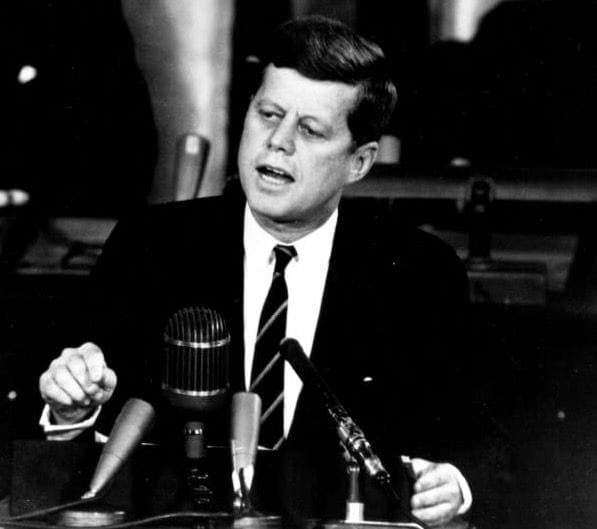I was an 11-year-old boy growing up on Long Island when President John F. Kennedy declared that the United States would seek to land a man on the moon, “because that goal will serve to organize and measure the best of our energies and skills.” Soon, I and other boys I knew were gluing together plastic models of space capsules, reading biographies of astronauts, and devouring all the information on rocketry and space travel that our adolescent brains could absorb. Girls swooned over the engineers. When MIT accepted an older cousin of mine (he went on to succeed as a tech entrepreneur), the whole family was engorged with pride.
The last afterglow of Kennedy’s cultural impact was the 1999 film October Sky, about rocket enthusiasts in a West Virginia mining town. For today’s Millennials and Zoomers, this all might as well have been ancient history—but for Robert F. Kennedy Jr.’s outsider Democratic primary challenge to President Biden.
In an interview last month, the younger Kennedy invoked his uncle’s and father’s foreign-policy triumph—the peaceful resolution of the Cuban Missile Crisis—as an example for ending the war in Ukraine. America, RFK Jr. said, has the chance “to take a radically different path, a path towards peace,” as JFK had at a moment when civilization itself was in the balance.
Whatever becomes of RFK Jr.’s bid—and the man has an outsized portion of cranky views—it’s all too urgent to recover his uncle’s legacy, and the blueprint JFK left behind for American flourishing in a new century.
